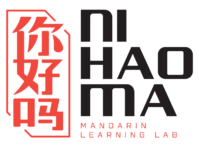Are you facing the decision between the convenience of online courses and the traditional classroom setting for your HSK exam preparation? In this blog, we’ll explore the benefits of each type to help you make an informed choice. But first, let’s understand the significance of the HSK exam in your language-learning journey.

Understanding the HSK Exam
The HSK (Hanyu Shuiping Kaoshi) is a standardized test that evaluates the Chinese language proficiency of non-native speakers’ abilities in listening, reading, and writing Mandarin Chinese. Recognized worldwide, achieving a high score in the HSK can open doors to academic opportunities, employment prospects, and cultural exchange programs in Chinese-speaking regions.
Importance of Choosing the Right Preparation Method
With high stakes and your aspirations on the line, the importance of choosing the correct preparation method cannot be overstated. Whether opting for online courses or traditional classroom learning, your decision significantly impacts your learning journey, efficiency, and ultimately, your success in the HSK exam.
Difference between Online and Offline Classes
Before going into the specifics, take a moment to glance at this table, offering a concise comparison of the two learning approaches available for your HSK exam preparation. This visual aid will help you grasp the key differences between online and offline classes, allowing you to make a well-informed decision tailored to your preferences and needs.
| Aspect | Online Classes | Offline Classes |
| Flexibility | Flexible scheduling, learn from anywhere | Fixed schedules, attend classes in person |
| Interaction | Connect to peers around the world | Direct interaction with instructors and peers |
| Feedback | Feedback via email and message | Feedback from instructors |
| Resources | Access to digital resources and materials | Access to textbooks and materials |
| Cost | Generally lower cost due to reduced overhead | Higher cost due to facility and staff expenses |
| Distractions | Potential for distractions at home | Fewer distractions in a dedicated learning space |
Note: This blog primarily focuses on a specific category of online learning, which involves students attending classes with their teachers through software platforms like Koala or Zoom.
The Advantages of Online Courses
In recent years, online learning has surged in popularity worldwide, and Southeast Asia is no exception. With the strong development of digital technology and the internet, online education has become increasingly accessible, offering learners the flexibility to study anytime, anywhere. This trend has been accelerated by factors such as the COVID-19 pandemic, which prompted a significant shift towards remote learning.
In Southeast Asia, the HSK online learning trend has gained momentum due to several factors. Firstly, the region boasts a young and tech-savvy population eager to embrace digital platforms for education. Additionally, learning online offers numerous advantages that cater to the modern learner’s lifestyle and preferences. Here are some key benefits:
Learn from Anywhere
With online learning, you have the freedom to study Mandarin from virtually anywhere with an internet connection. Whether you’re at home, traveling, or in a coffee shop, you can access course materials and participate in classes without being tied to a specific physical location. This flexibility enables individuals to create their ideal learning environment, whether it’s a quiet study space at home or a bustling cafe.
Learn Anytime
Online HSK courses provide learners with the flexibility to study at their own pace and on their schedule. Unlike traditional classroom settings with fixed times, online learning allows individuals to choose the most convenient schedule to engage with course materials. Whether you’re an early riser who prefers to study in the morning or a night owl who thrives in the evening, Mandarin online course accommodates various schedules and preferences. This flexibility ensures that education can fit seamlessly into your busy life, allowing you to balance work, family, and other commitments while pursuing your academic goals.
Cost Savings
One of the significant advantages of online learning is its potential for cost savings. Learners can save cost on commuting expenses, parking fees, and other associated costs of attending a physical classroom. Additionally, many HSK online courses offer flexible payment options and may have reduced tuition fees compared to traditional in-person education. With online learning, you can avoid the financial burden of relocating or traveling to attend classes, making education more accessible and affordable for a wider range of individuals. These cost savings can significantly lower the barrier to entry for learners seeking to further their education or acquire new skills.
What is meant by online classes?
Online courses offer flexibility, allowing learners to study at their own pace and convenience. They provide access to many resources, including interactive platforms, multimedia materials, and virtual classrooms.
Check out Ni Hao Ma Online Programs here.
The Advantages of Offline Classes
What is meant by offline classes?
Traditional classes involve face-to-face instruction in a physical classroom environment, with a set schedule and direct interaction with instructors and classmates.
Structured Learning Environment
HSK Traditional classroom settings offer a structured approach to learning, with scheduled classes, fixed timetables, and well-defined curriculum outlines. This structured environment provides you with a clear roadmap of what to expect throughout your learning journey, helping you stay organized, focused, and on track with your academic goals. Additionally, the presence of a physical classroom creates a formal atmosphere conducive to learning, fostering discipline and accountability among students.
Develop Connections
One of the most significant benefits of learning HSK offline is the opportunity for direct and immediate interaction with teachers. In-person learning allows you to engage with their teachers in real time, asking questions, seeking clarification, and receiving personalized feedback on their progress. This direct interaction not only enhances the learning experience but also promotes active engagement and participation in the classroom. You can benefit from the wealth of knowledge and expertise that experienced educators bring to the table, receiving guidance, support, and mentorship to navigate your academic challenges effectively.
Extracurricular Activities
HSK Traditional classrooms often provide opportunities for extracurricular activities, such as group projects, presentations, field trips, and cultural events. These activities complement HSK skills by providing students with hands-on experiences, real-life speaking practice, and social interaction outside of the academic curriculum. Engaging in extracurricular activities can foster teamwork, creativity, leadership, and personal development, contributing to a well-rounded learning journey. Additionally, participating in extracurriculars allows students to explore their interests, passions, and talents beyond the confines of the classroom, enriching their overall learning experience.
Common Misconceptions about Online and Offline Learning
Before making your decision between online and offline classes for HSK preparation, it’s essential to address some common misconceptions or myths surrounding both learning methods. These misconceptions may influence your perception and could potentially sway your decision. Let’s debunk a few of them:
Online Learning is Less Effective
Some people believe that online learning is less effective than traditional classroom learning. However, numerous studies have shown that well-designed online courses can be just as effective, if not more so, than in-person instruction. The key lies in the quality of the course content, instructor expertise, and student engagement.
Offline Learning is More Relentless
There’s a misconception that offline learning in a traditional classroom setting is inherently more rigorous and disciplined than online learning. While offline classes may provide a structured environment, online courses can offer similar levels of rigor through self-discipline and dedication.
Online Courses Lack Personalized Attention
Another myth is that online courses lack personalized attention from instructors. However, many online learning platforms incorporate interactive features such as live Q&A sessions, discussion forums, and one-on-one tutoring to provide personalized support to students.
By addressing these misconceptions, you can gain a clearer understanding of the strengths and weaknesses of both online and offline learning methods.
Tips to choose the best fit for you
After weighing the benefits of both learning methods, if you’re still unsure which option suits you best, consider these factors to guide your decision between online courses and traditional classes for HSK preparation.
Learning Preferences and Styles
Take a moment to reflect on your individual learning preferences and styles. Are you someone who thrives in a self-directed, independent learning environment, or do you prefer the structure and guidance provided by traditional classroom settings? Consider factors such as your attention span, concentration levels, and intrinsic motivation to gauge which learning style resonates with you the most.
Time Availability and Flexibility
Evaluate your current schedule and determine how much time you can realistically dedicate to HSK preparation. Online courses offer unparalleled flexibility, allowing you to study at your own pace and customize your learning schedule to accommodate other commitments such as work or family responsibilities. Conversely, traditional classes may adhere to fixed schedules that may or may not align with your availability. Assessing your time constraints and preferences will help you determine which learning format suits your lifestyle best.
Budget Considerations
Compare the financial implications of both online courses and traditional classes. While online courses tend to be more cost-effective due to reduced overhead expenses, traditional classes may offer additional amenities or resources that justify their higher price tag. Take into account your budget constraints and weigh the value proposition of each option. Consider factors such as course fees, study materials, transportation costs, and any potential hidden expenses to make an informed financial decision.
Goals and Expectations for the HSK Exam
Clearly define your goals and expectations for the HSK exam, including your target score and desired level of proficiency. Reflect on whether online courses or traditional classes can adequately prepare you for the exam and help you achieve your objectives. Evaluate the quality of instruction, study materials, and support provided by each learning format to ensure they align with your HSK preparation goals. Additionally, consider seeking recommendations from past students or consulting with language experts to gain insights into the effectiveness of each option.
Case study: Overcoming Distance and Busy Schedules with Online Mandarin Learning
Challenges
Rachel, a busy RMIT student with aspirations to advance her Mandarin proficiency, faced limitations due to her distance from traditional learning centers and her jam-packed schedule. Commuting to classes was impractical, and finding time among her busy work commitments seemed daunting.
Solution
Opting for an online approach, Rachel enrolled in 1-on-1 Mandarin classes with native teachers through Ni Hao Ma. With the flexibility to commit 3-6 hours per week, she could tailor her study hours to fit her schedule seamlessly. The online platform offered the convenience of learning from the comfort of her home while receiving personalized guidance from experienced instructors.
Rachel found immense joy in her learning journey, thanks to the enthusiastic nature of her native teachers. Additionally, the supportive atmosphere of Educational Consultants enriched her experience, offering encouragement and assistance along the way.
Result
Despite the initial challenges, Rachel’s dedication and the effectiveness of the online learning platform paid off remarkably. Within less than 18 months, she achieved an impressive HSK 4 proficiency level.
Her newfound language skills opened doors to exciting opportunities, including serving as a Chinese interpreter at a prestigious Trade Promotion Conference. Rachel’s success story is a testament to the transformative power of online Mandarin learning, overcoming geographical barriers and busy schedules to achieve remarkable language proficiency and career advancement.
In conclusion, whether you choose online or offline classes for your HSK preparation ultimately depends on your individual preferences, learning style, and specific goals. Both methods offer unique advantages, and there is no one-size-fits-all solution. It’s essential to weigh carefully and consider factors such as flexibility, interaction, cost, and results. By understanding the significance of the HSK exam and the differences between online and offline classes, you can make an informed decision that aligns with your needs and preferences.
If you’re ready to take the next step in your Mandarin language journey, we invite you to explore Ni Hao Ma’s online HSK preparation courses. Our certified native teachers, flexible scheduling options, and interactive learning platform are designed to help you achieve your language learning goals effectively and efficiently.
Don’t let anything hold you back from reaching your full potential in Mandarin. Start your HSK preparation today and unlock new opportunities for personal and professional growth.
Contact us now to learn more about our online HSK preparation courses!



